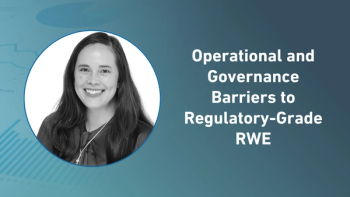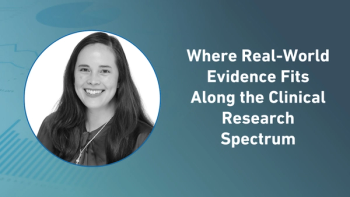
- Applied Clinical Trials-10-01-2022
- Volume 31
- Issue 10
What the Future State Really Looks Like for Clinical Data Leaders
Accelerating trends in clinical data are forcing changes in strategy.
The industry-wide jump in data complexity, digitization initiatives and volume of data sources, propelled further by the pandemic, require new approaches to clinical data management. A
Since 2019, the trends impacting clinical data have only accelerated, due in part to adoption of decentralized clinical trial (DCT) models that enable increased remote data collection and greater utilization of local labs. Amidst this disruption, digital and analytics-based modern data management is now an imperative. Here are three ways clinical development leaders can approach this data management evolution by aligning people, process, and technology.
The rise of the data steward
Today, few would deny the importance of a data strategy. The current data environment is too complex not to have one. Most clinical data is generated from sources external to electronic data capture (EDC), and trials routinely average 8 or more data sources; many include 15+. The traditional role of the siloed data manager, focused on cleaning and querying listings of EDC data, is in the past. But in its next iteration, data management has even more value to offer. The data management role has evolved continuously, becoming more technically advanced and growing in responsibility and complexity over the last 20 years. We’ve heard it asked, is the data manager becoming a data scientist? I would argue no. Instead, the data manager has evolved into a data steward, the confident leader who owns and guides the modern data strategy.
This new paradigm demands different skills, too. The data manager as data steward applies a breadth of knowledge across clinical development, from data management to quality and regulatory. They collaborate with clinical operations, programming, and biostatistics with enough professional knowledge of each to enable cross-functional empathy, ensuring all data stakeholders can get what they need from the data. This modern data manager looks at the whole picture the data tells across all data sources, connecting it to their knowledge of the data strategy for the trial. They apply their technical skillset to the many different systems used in development to support evolving protocol requirements and ensure that tech aligns to process improvements in support of accelerated timelines.
Empower data management with the right tools
Variety in acquisition technologies creates flexibility to choose what is best for trials and participants. For clinical data infrastructure and analytics, this means interoperability is critical. Centralized data platforms can increase the quality of data deliverables and reduce manual work positively impacting cycle times. Integrated clinical data platforms ingest and organize all sources and structures of data. They must have the ability to serve all their users, not solely the data manager. Data stewards maximize the use of these types of foundational tools that automate end-to-end data flows and enable greater collaboration and faster time to insights.
Optimize processes around a risk-based approach
It’s one thing to have technologies and another to drive their use, adoption, and utilization. For the data steward, upskilling team members and training in technologies is key. It’s important to consider technology as organization-led and supported from a top-down approach. Involve teams across functions in re-engineering processes around the technology. It's not about bringing technology in, but about maximizing its use for the greatest efficiency gains.
Value is recognized when teams adopt and apply these tech-enabled approaches within the context of their data strategy framework. Self-service analytics focus attention where it’s meaningful and create collaboration opportunities among colleagues from a single source of truth. Teams can identify issues, see what has been reviewed and detect trends and outliers in need of discussion. This approach avoids teams waiting until the end of the trial to integrate data risking rework due to missed insights or outliers.
Look forward
Data is the final product delivered to FDA—the output of research and currency of the life sciences industry. We have reached an inflection point fueled by breakthrough achievements in science, industry disruption, and intent to accelerate research. The data manager is the steward of this most critical asset through this perfect storm. By evolving their skills and adopting tech-enabled processes, they will guide the way—ensuring modern data strategies produce sustainable efficiencies for the future of data management.
Katrina Rice, Chief Delivery Officer, Data Services at eClinical Solutions
Articles in this issue
over 3 years ago
Managing Biospecimens in Cell and Gene Therapy Trialsover 3 years ago
The Risk-Reward Proposition for CGT Clinical Trialsover 3 years ago
Philadelphia Shines in Cell and Gene Therapy Research Pursuitsover 3 years ago
Survey Investigates Backup Solution Adoption for ePRO Systemsover 3 years ago
Scientists Don’t Ever Stop Sciencingover 3 years ago
Applied Clinical Trials October 2022 Issue (PDF)Newsletter
Stay current in clinical research with Applied Clinical Trials, providing expert insights, regulatory updates, and practical strategies for successful clinical trial design and execution.




